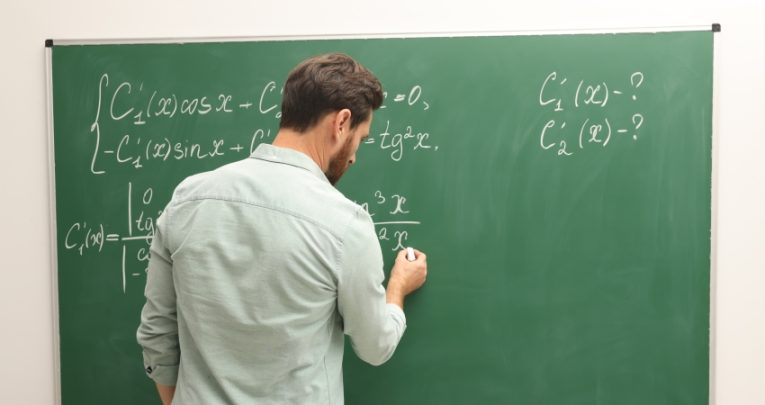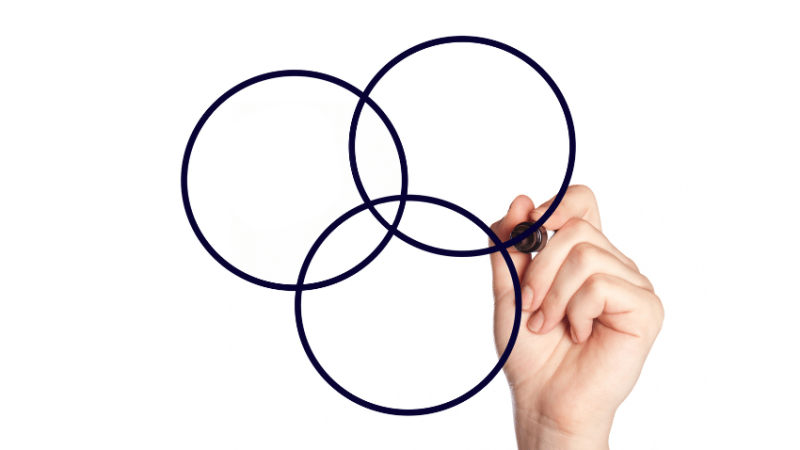Teacher qualifications – Why do you need a maths GCSE to teach humanities?

So, you want to be a humanities teacher? Well, first you’ve got to be able to interpret fractions and percentages as operators, notes an exasperated John Lawson…

- by John Lawson
- Former teacher, governor, author & owner of tutoring service Visit website

One of my close friends, Eve, has gained a first in philosophy, a distinguished Masters in English literature and a doctorate in theology.
She has raised three remarkably independent daughters, and held down a full-time managerial position at a City law firm for 12 years while she studied.
Yet while she enjoys the job and its generous benefits, education is her true passion. Eve is an engaging and impressive communicator, and would have become a certified teacher were it not for one irrelevant gap in her otherwise impressive CV – she needs a grade C/4 GCSE in mathematics to commence a secondary PGCE.
Why?
Unfit to teach
Eve left school at 15, later blossoming as a mature student, with the result that a maths qualification was never something she’d required or needed. Indeed, I myself excelled in my undergraduate logic class without studying maths.
This ‘illogical’ GCSE requirement maligns the work of humanities scholars who dexterously manipulate and evaluate the complex empirical and theoretical data generated by their disciplines. Many teachers successfully utilise intuition, logic, and imagination without the conscious application of maths.
Yet the DfE insists that for now, Eve is unfit to teach English in state secondary schools – unless she acquires a ‘C/4’ in mathematics, whereupon she will be officially hailed as the excellent candidate she already is. Sorry, but it simply doesn’t add up.
Bureaucratic myopia
Many among today’s online voices are actively seeking to expose this lazy and prejudicial DfE ruling that hones in on people’s supposed ‘deficiencies’ rather than celebrating their unique skills and talents.
Are we effectively barring the 35% of teens who fail to achieve a grade 4 in maths from teaching? Virtually all forms of prejudice reduce individuals to a small part of who they are. Instead of viewing the whole person, critics fixate on a perceived flaw. In this case, Eve may be brilliant, but tut tut, she hasn’t passed maths.
My own research has led to me identifying seven pillars of effective teachers – knowledge, passion, clarity, love, labour, creativity, and SOH. Mathematical mastery isn’t one of them.
As a primary school governor, I’ve supported drives for higher standards across the board in English, maths, and science. I’m not entirely opposed to setting rigorous standards for secondary PGCE students, but in this case, I do take issue with the bureaucratic myopia, superficiality and intransigence of the move – not the immense value of mathematics as a subject. It seems odd that we reularly take on new staff with with dyslexia across the teaching profession, while continuing to discriminate against those who aren’t consummate mathematicians.
‘Might is right’
Mathematical (in)ability doesn’t determine one’s ability to teach the arts and humanities. There are many ‘inspirational teachers’ currently in post who couldn’t pass a GCSE maths exam if they took one tomorrow. Should we fire them?
It’s an absurd and superficial rule that could conceivably have prevented Jesus Christ himself from teaching RE and Shakespeare from teaching a lesson on Macbeth.
I’ve written to the DfE repeatedly about it, and had eight different officers feed me the templated party line: “GCSE maths is a statutory requirement for initial teacher training courses…[It] also ensures that candidates have a minimum standard of educational attainment.”
This ‘circular’ auto-response doesn’t actually address the question – it merely dissolves it. It seems that the DfE would rather project a ‘might is right’ approach than reconfigure its entry requirements in a way that could significantly increase our talent pool.
So long as our egos are kept in check, one can never lose an argument. If anyone demolishes you in a debate, politely thank them and simply steal any ideas they present that you happen to agree with. So here’s one I stole earlier, courtesy of Plato:
“The highest form of knowledge is empathy, for it requires us to suspend our egos and live in another’s world.”
It’s time for us to stop defending the indefensible and instead welcome any and all candidates with immense character, strong subject knowledge, acute thinking skills, and empathetic mindsets into our diverse schools.
John Lawson (@johninpompano) is a former secondary teacher, now serving as a foundation governor and running a tutoring service, and author of the book The Successful (Less Stressful) Student (Outskirts Press, £11.95); for more information, visit prep4successnow.wordpress.com










